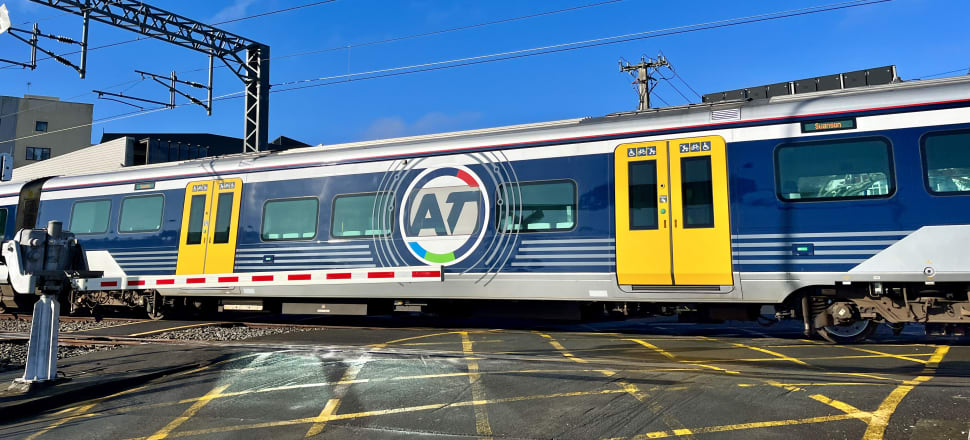
Auckland’s transport agency is crying out for more certainty in funding models as an expanding city and asset base ensure that costs are only on the way up
Auckland Transport chief executive Dean Kimpton is sounding the alarm on the viability of the agency as the costs of running the city’s transport network soar.
Speaking to the agency's board meeting on Wednesday, Kimpton warned the one-two punch of an uncertain revenue model and a swelling asset base could put the agency in a tough spot.
READ MORE:
* Cuts and job losses 'across the board' at Auckland Transport
* Level crossings in the crosshairs for council
The organisation currently has $26.3 billion in assets, but in 10 years' time that number will look more like $40 billion with the introduction of the City Rail Link and continued capital spending plans.
And with almost half of the current capital programme expected to go into renewals – the upgrading and maintenance of said assets – he fears there will come a time when AT is spending almost all its money on just keeping the status quo.
“If we cannot resolve this issue, by the mid 2030s, all but our capital programme will be used to fund renewals,” he said. “So I'm signalling, I'm sounding a big alarm ... we have to do something different, if we keep repeating the same action it feels like it could go down to a definition of insanity.”
Kimpton said alongside uncertain future incomes, it's also a struggle to invest in long-term plans like infrastructure and public transport services that could take half a decade to get off the ground, while all the while the organisation is beholden to a yearly cycle of new budgeting from Auckland Council.
“You can't run a business like this, so my appeal is ... we have to address certainty of funding at the programme level,” he said.

His other plea was to find some new solutions for the organisation’s “inadequate” revenue model.
He suggested fuel excise duties or road user charges could be leveraged to allow New Zealand to have the network it wants.
Franklin ward councillor Andrew Baker, who acts as liaison councillor to Auckland Transport, asked how the issue could best be pushed forward.
“How do we advance that conversation, because it's all well and good to talk about it in here but at some stage it needs to be laid bare to the council through the transport infrastructure committee,” he said. “To say we are in the shtuck here and we need to do something.”
On the same day, the board members agreed on a budget scenario that would see cuts across the board of capital programmes, after this year’s storm events and council shortfalls forced Auckland Transport to redo its capital budget.
The plan at the moment is to prioritise projects the agency has already committed to finishing, such as the City Rail Link and the Eastern Busway, and put less cash on the table for projects that are less set in stone.
Rosedale Busway Station, the urban cycleway network and improvements to the Northwest bus passage will all receive less funding under this budget.
But while Auckland Transport has just over $1 billion to spend on capital projects, $507 million has been earmarked for asset renewal, and $75 million will go towards flood and storm recovery.
It’s apparently pretty expensive to keep billions of dollars of assets in good condition, and Kimpton has cautioned the board that it’s a situation that will only get more dire as that asset base nearly doubles in the next decade.
And even with that, he told media last week he would like to see more money put aside for maintenance purposes.
“There's just a lot of tension in the budget. We're not delivering on maintenance renewals in the way that we would like to,” he said.
A lot of recent talk in local politics has centred around making sure councils and umbrella organisations are getting value for their money.
Auckland Mayor Wayne Brown rode victoriously into office on the promises of holding council operators to task and getting a good bang for buck.
One of his first moves in the role was to send out letters to council-controlled organisations outlining his expectations.
For Auckland Transport, he wanted new levels of transparency, accountability and reduced cost to council.
Brown has since said he’s been pleased with those organisations' compliance with his desires.
But AT board chair Wayne Donnelly has apparently written his own letter back recently to both the Mayor and the Minister for Auckland (where a Michael Wood-shaped absence was recently filled by Andrew Little).
Donnelly asked for the revenue situation to be considered in greater depth in the Auckland Transport alignment project, a cross-agency partnership including the Ministry of Transport, Waka Kotahi NZ Transport Agency, KiwiRail, the Treasury, Auckland Council, Auckland Transport and State Services Commission.
Another AT staffer emphasised that bipartisan support for AT's situation would also be vital in the future.
The changes between the budget decided on yesterday and the figures put forward previously can be seen below:







